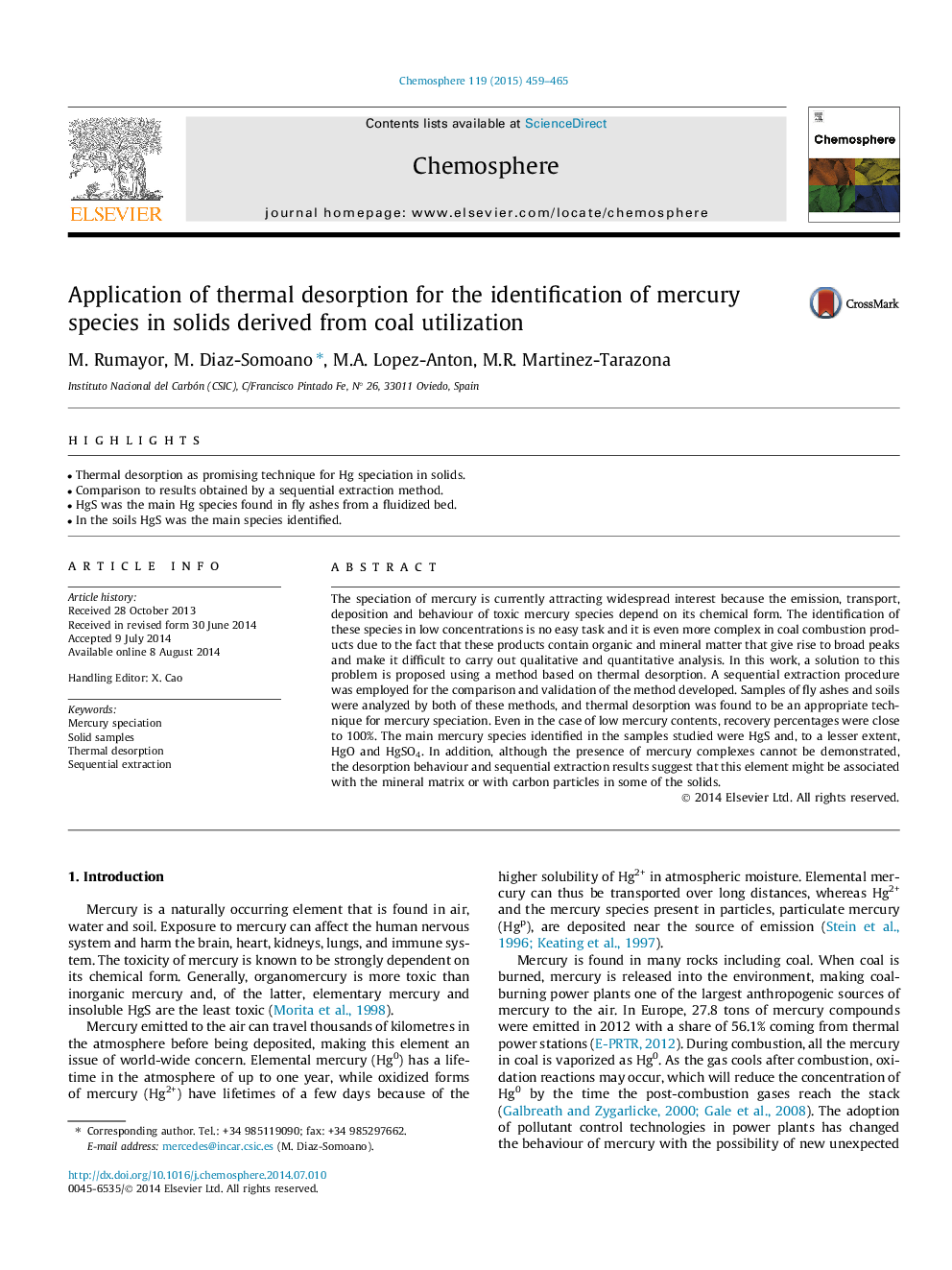| کد مقاله | کد نشریه | سال انتشار | مقاله انگلیسی | نسخه تمام متن |
|---|---|---|---|---|
| 4408655 | 1618852 | 2015 | 7 صفحه PDF | دانلود رایگان |

• Thermal desorption as promising technique for Hg speciation in solids.
• Comparison to results obtained by a sequential extraction method.
• HgS was the main Hg species found in fly ashes from a fluidized bed.
• In the soils HgS was the main species identified.
The speciation of mercury is currently attracting widespread interest because the emission, transport, deposition and behaviour of toxic mercury species depend on its chemical form. The identification of these species in low concentrations is no easy task and it is even more complex in coal combustion products due to the fact that these products contain organic and mineral matter that give rise to broad peaks and make it difficult to carry out qualitative and quantitative analysis. In this work, a solution to this problem is proposed using a method based on thermal desorption. A sequential extraction procedure was employed for the comparison and validation of the method developed. Samples of fly ashes and soils were analyzed by both of these methods, and thermal desorption was found to be an appropriate technique for mercury speciation. Even in the case of low mercury contents, recovery percentages were close to 100%. The main mercury species identified in the samples studied were HgS and, to a lesser extent, HgO and HgSO4. In addition, although the presence of mercury complexes cannot be demonstrated, the desorption behaviour and sequential extraction results suggest that this element might be associated with the mineral matrix or with carbon particles in some of the solids.
Journal: Chemosphere - Volume 119, January 2015, Pages 459–465